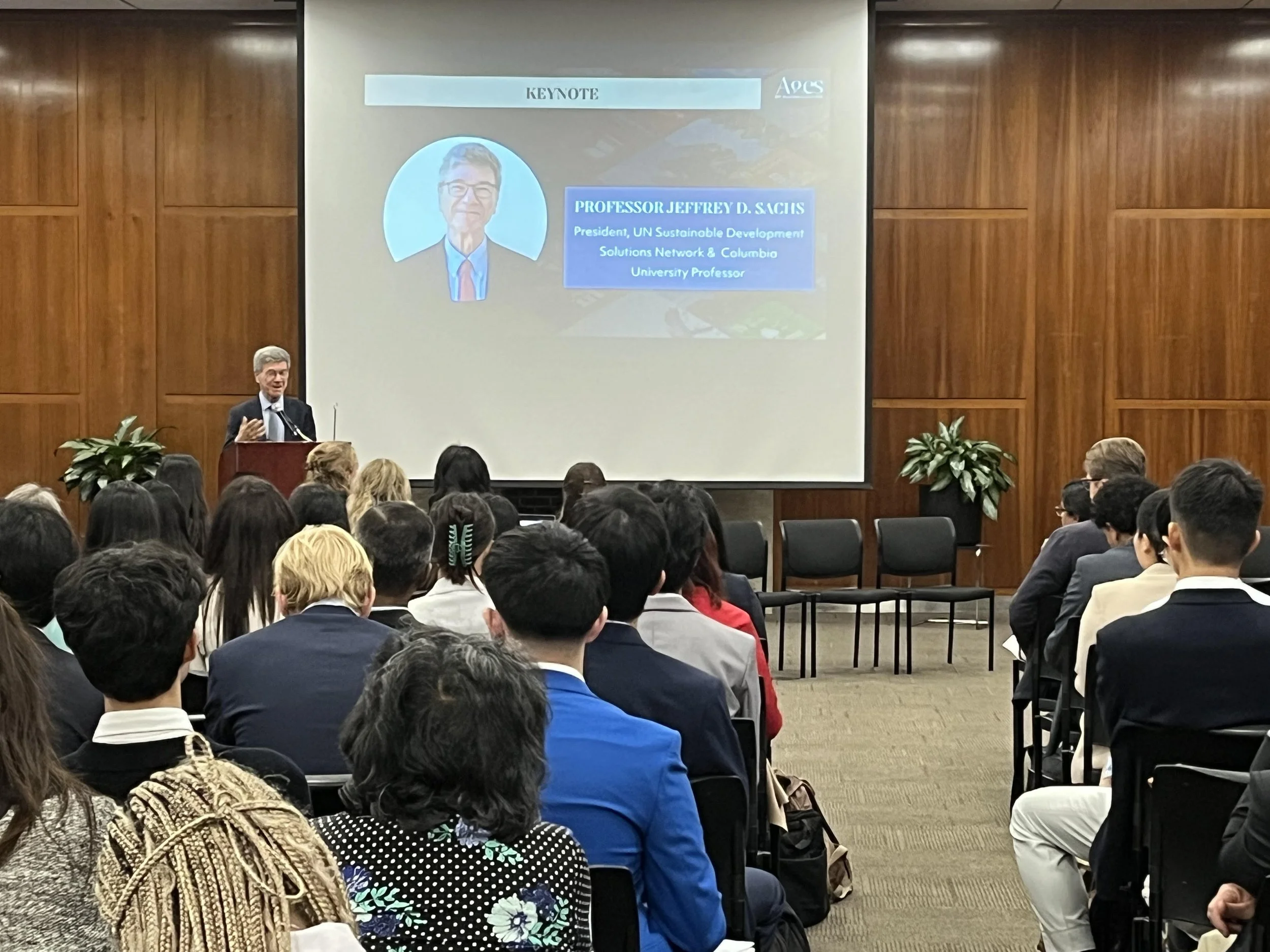13,000 Learners, 165 Countries – Be Part of the Next Chapter
On September 22, 2025, we celebrated the Global Launch of the Ages of Globalization learning journey — a milestone made possible thanks to all of you.
With 100+ participants in the room and over 1,000 joining online, the event was full of energy: interactive panels, global spotlights, and an inspiring keynote from Professor Jeffrey D. Sachs. Most importantly, young voices were front and center, challenging us to rethink how education can shape a more sustainable future. Watch the recording here.
We also unveiled our new Higher Education track, opening the doors for universities, students, and faculty worldwide to engage more deeply with AoG.
Program Highlights
Professor Jeffrey D. Sachs, President of SDSN and Columbia University Professor
The day opened with powerful reflections on our shared responsibility in a rapidly changing world.
In his keynote, Professor Jeffrey D. Sachs set the tone by naming the scale of our moment:
“We have 8 billion people to take care of; that requires a lot of insight, systems, technologies, decency and humanity.”
The sessions that followed built on this call. Speakers examined the state of global education, why history matters for the choices we make next, and how creative action can meet the climate crisis. Youth voices kept the conversation grounded in lived realities and future possibilities.
Five key insights
Teach local and global together: Effective education for sustainable development connects classroom learning to community action while situating both within global systems.
Think globally, read history clearly: The Ages of Globalization framework looks beyond borders and helps learners see long-term patterns that shape today’s challenges and choices.
Center socioemotional learning: Empathy, collaboration, and reflective practice are not extras. They are key for teachers and students to build sustainable futures.
Give youth real seats in decision-making: Young people are primary stakeholders in education; they should co-design curricula, share in governance and budget decisions, and set priorities—not just participate.
Move from insight to action: The hurdles are real, but coordinated efforts across schools, communities, and institutions can translate learning into measurable progress toward a more sustainable, just, and equitable future.
Higher Education Track — Now Live!
During the event, we also launched our new Higher Education track, including 10 live online sessions with Professor Jeffrey D. Sachs.
Click here to learn more and get involved!
In this short video, Dr. Lucia Rodríguez, SDG Academy’s Director of the Master’s in Development Practice Secretariat, explains how universities can get involved and what comes next.

